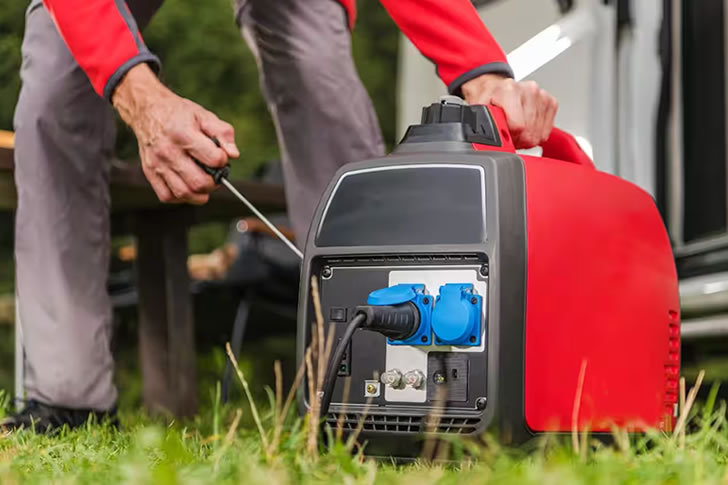High-Value Generators: What Buyers Should Know
In today’s world, having a reliable power source is not just a convenience; it’s often a necessity. Generators play a crucial role during power outages caused by natural disasters or maintenance issues. So how to purchase a good quality generator without falling into the trap of buying substandard equipment?

Understanding the Different Types of Generators
Before diving into cost-saving tips, it’s important to understand the types of generators available and their typical applications:
- Portable Generators: These are ideal for occasional use, such as for camping trips or powering a few home appliances during a blackout. They typically run on gasoline and have a power output ranging from 1,000 to 10,000 watts.
- Inverter Generators: Known for their efficiency and low noise levels, inverter generators are suitable for powering sensitive electronic devices since they produce stable power. They are more expensive but offer better fuel efficiency and less environmental impact.
- Standby Generators: These are permanent fixtures installed outside the home that automatically power on during outages. They can run on natural gas, propane, or diesel and can power an entire home.
Tips for Finding Cost-Effective Generators
- Evaluate Your Power Needs: Accurately assessing your power requirements will prevent you from overspending on a generator with more capacity than you need. Calculate the total wattage of the appliances you plan to power simultaneously to determine the appropriate generator size.
- Shop During Off-Peak Times: Prices for generators can fluctuate based on the season. Typically, demand—and therefore prices—peak around storm seasons and major weather events. Shopping during off-peak times can lead to better deals.
- Consider Refurbished Models: Certified refurbished generators can offer significant savings over new models. These units are often ones that have been returned and restored to like-new condition. They usually come with a warranty, providing peace of mind.
- Research Various Brands and Models: Conduct thorough research on different brands and models. Reading reviews and comparing specs can help you identify which models offer the best value for money.
- Look for Promotions and Rebates: Manufacturers and retailers sometimes offer promotions, discounts, or rebates on certain models. Keeping an eye on these deals can reduce the cost considerably.
- Check Out Auctions and Estate Sales: You can find lightly used or even new generators being sold at a fraction of their retail price at auctions or estate sales.
Explore Financing Options: If upfront cost is a barrier, consider financing options. Some retailers offer payment plans that spread the cost over several months.
Calculating Total Cost of Ownership
When purchasing a generator, the sticker price isn’t the only cost to consider. Maintenance, fuel consumption, and operational efficiency all play a role in the total cost of ownership. For example:
- Fuel Efficiency: More fuel-efficient models can save a significant amount over the generator’s lifespan.
- Maintenance Requirements: Some generators require frequent maintenance, which can add to the overall costs. Choosing a model known for reliability and low maintenance needs can result in long-term savings.
This guide aims to empower consumers to make informed decisions when purchasing generators. By understanding their needs, researching options, and considering total ownership costs, consumers can find generators that are both cost-effective and reliable. This approach ensures that you can maintain power when you need it most without straining your budget.







Recent Comments